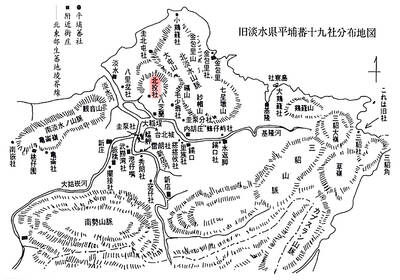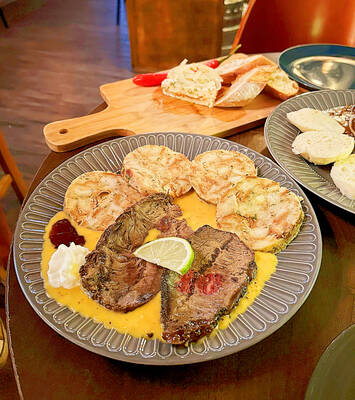Beverly Hills Chihuahua
This is the latest in a lengthening line of live-action “talking animal” movies that started with Babe. The plot starts with the title: a prissy, pampered but charming Chihuahua (Drew Barrymore) is taken south of the border by her owner’s niece, where she gets lost and runs into all sorts of trouble, not unlike the misadventure depicted in Babe: Pig in the City. There are stars galore in this canine caper, but the biggest question is why celebrated Hispanic actor/director/activist Edward James Olmos would contribute his voice to Disney fluff that paints Mexico as a place gone to the dogs.
Wushu 武術
The title and promotional literature scream “Hong Kong action flick” but this one is a little out of the ordinary and rates a wider audience. Described as a coming of age drama in martial clothing, Wushu charts friendships among students who eventually use their fighting skills and sense of righteousness to tackle a sinister organization targeting children. Stars the incomparable Sammo Hung (洪金寶) as the father of brothers who get in the thick of the action, as well as several young, real-life martial arts champions. Directed by one-time Australian stuntman and wushu practitioner Antony Szeto and executive produced by Jackie Chan (成龍).
Tokyo!
A French production, Tokyo! offers three off-kilter portraits of the city by directors Michel Gondry (Be Kind Rewind), Leos Carax (Les Amants du Pont-Neuf) and Bong Joon-ho (The Host). Gondry’s segment has a Japanese couple arriving in the city and finding the going quite tough — before a surreal change takes place. The Carax short is anarchic and confrontational: a grisly creature emerges from nowhere to insult and cajole Tokyosiders. Bong finishes the trilogy with a love story whose hero is agoraphobic but who still tries to get the girl (his Cupid turns out to be an earthquake). Don’t be put off by the bland, congenial poster and ads in the newspapers; this is a quality urban ode with attitude and real teeth.
The Good, the Bad, the Weird
A top earner at home and billed as South Korea’s most expensive production, this hybrid of Sergio Leone and Korean quirkiness reimagines the spaghetti western in Chinese desert locales and serves up grand entertainment. The three titular characters get caught up in a race for ancient loot in prewar Manchuria as the Japanese tighten their grip on the area, a contest that triggers elaborate fights and stunts. Critically acclaimed, this is a film that deserves to be seen in a big theater. Directed by Kim Jee-woon, who made the formidable psychological thriller A Tale of Two Sisters.

Seven hundred job applications. One interview. Marco Mascaro arrived in Taiwan last year with a PhD in engineering physics and years of experience at a European research center. He thought his Gold Card would guarantee him a foothold in Taiwan’s job market. “It’s marketed as if Taiwan really needs you,” the 33-year-old Italian says. “The reality is that companies here don’t really need us.” The Employment Gold Card was designed to fix Taiwan’s labor shortage by offering foreign professionals a combined resident visa and open work permit valid for three years. But for many, like Mascaro, the welcome mat ends at the door. A

The Western media once again enthusiastically forwarded Beijing’s talking points on Japanese Prime Minister Sanae Takaichi’s comment two weeks ago that an attack by the People’s Republic of China (PRC) on Taiwan was an existential threat to Japan and would trigger Japanese military intervention in defense of Taiwan. The predictable reach for clickbait meant that a string of teachable moments was lost, “like tears in the rain.” Again. The Economist led the way, assigning the blame to the victim. “Takaichi Sanae was bound to rile China sooner rather than later,” the magazine asserted. It then explained: “Japan’s new prime minister is

NOV. 24 to NOV. 30 It wasn’t famine, disaster or war that drove the people of Soansai to flee their homeland, but a blanket-stealing demon. At least that’s how Poan Yu-pie (潘有秘), a resident of the Indigenous settlement of Kipatauw in what is today Taipei’s Beitou District (北投), told it to Japanese anthropologist Kanori Ino in 1897. Unable to sleep out of fear, the villagers built a raft large enough to fit everyone and set sail. They drifted for days before arriving at what is now Shenao Port (深奧) on Taiwan’s north coast,

Divadlo feels like your warm neighborhood slice of home — even if you’ve only ever spent a few days in Prague, like myself. A projector is screening retro animations by Czech director Karel Zeman, the shelves are lined with books and vinyl, and the owner will sit with you to share stories over a glass of pear brandy. The food is also fantastic, not just a new cultural experience but filled with nostalgia, recipes from home and laden with soul-warming carbs, perfect as the weather turns chilly. A Prague native, Kaio Picha has been in Taipei for 13 years and